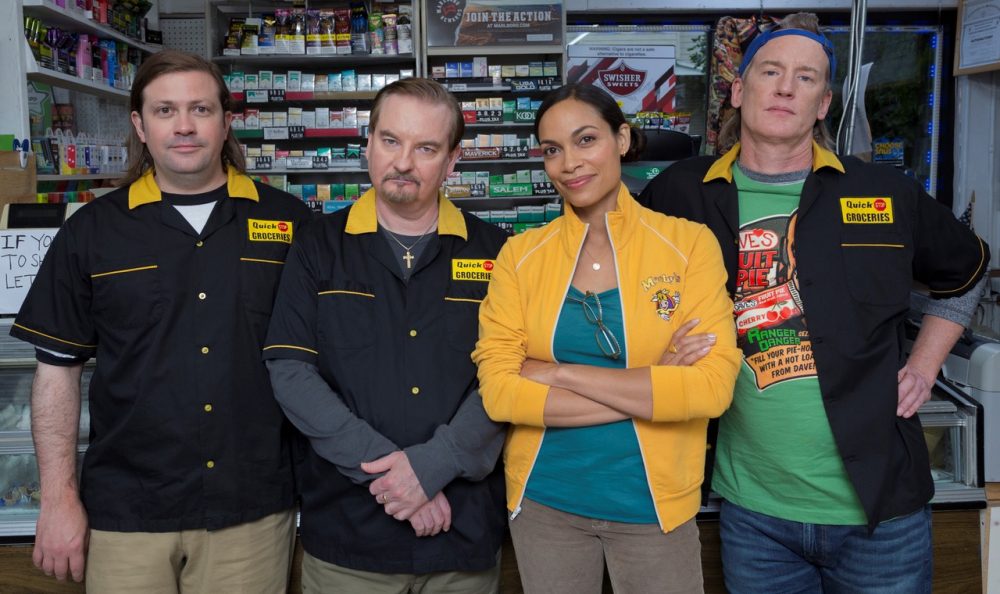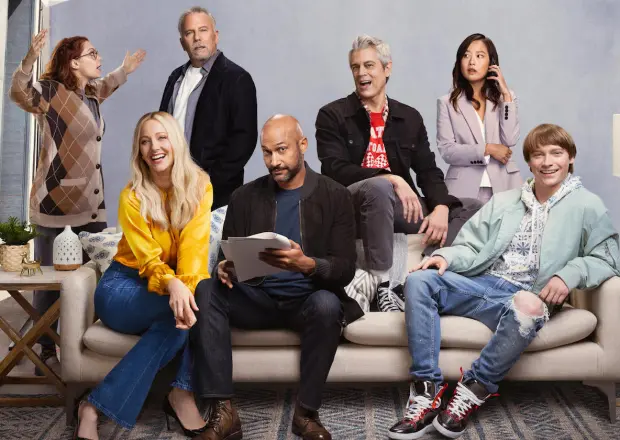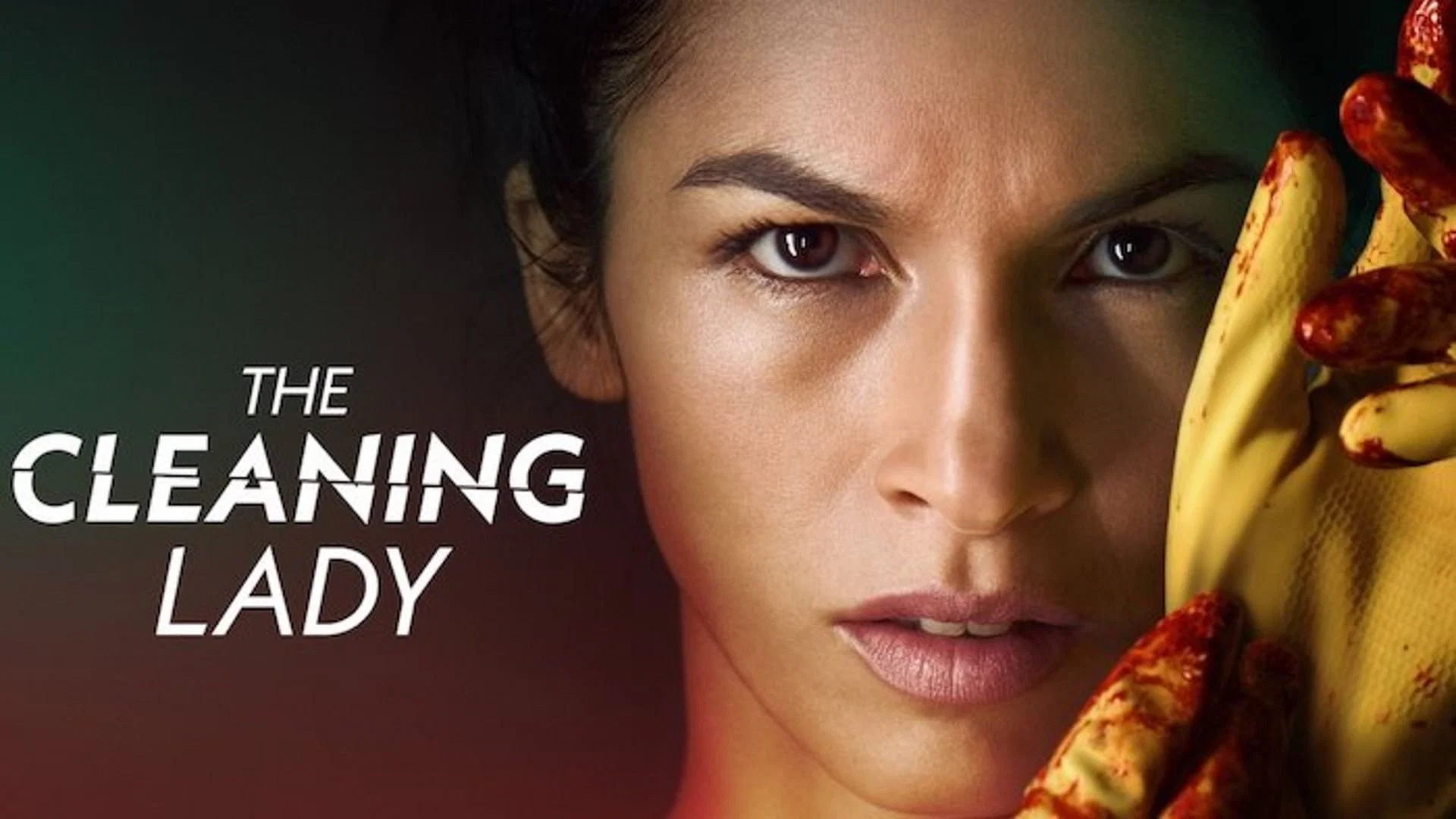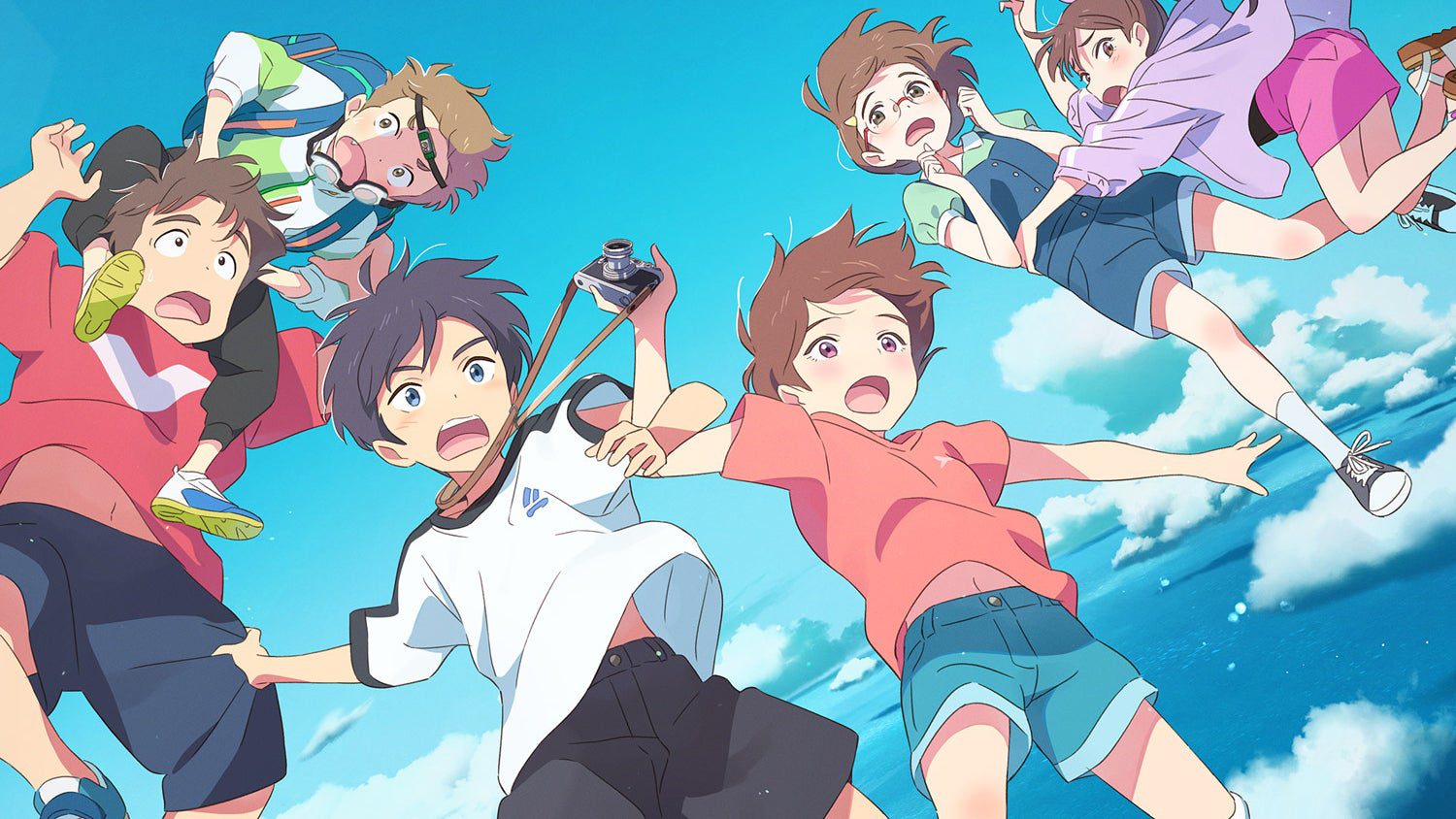Clerks III is the product of an ego-less filmmaker with nothing to lose. While Jay and Silent Bob Reboot was technically Kevin Smith’s first feature after miraculously surviving a “widowmaker” cardiac arrest, Clerks III marks Smith’s creative reckoning with the life-altering event. Jay and Silent Bob Reboot is an off-color war against reboot culture by an indie gunslinger — Clerks III is the meditative culmination of a father, husband, and geekdom advocate who came face-to-face with his mortality. Smith’s abundant nerd-culture metaphors synchronize with a gracious wholesomeness that’s unexpected in a franchise stuffed with juvenility from corpse boners to fast food donkey shows. Come for the crudeness; stay for the reflective existential warmth like a Death Star pointed at our emotions.
Smith reopens Quick Stop Groceries once more to find Randal (Jeff Anderson) and Dante (Brian O’Halloran) still behind the register, bickering about Star Wars. Nothing has changed, except for Father Time’s harshness — Smith recreates exact scenes from Clerks with his more aged cast for added contrast. Randal starts ripping into Jesus freak Elias (Trevor Fehrman) like every day after Clerks II, except this time he’s interrupted by an unexpected force — what’s classified a “widowmaker” heart attack. You know, the exact condition Smith himself conquered? With a new outlook on life, Randal decides his second chance shouldn’t be wasted and enlists Dante to help him produce an autobiographical movie based on their exploits as convenience store clerks.
Sound familiar? It should. Randal essentially remakes Clerks in the most meta of career retrospectives almost three decades after Smith’s defiant Sundance origin story.
Clerks III is a product of maturation despite potty-mouth lewdness and blazes of medicinal glory. Clerks and Clerks II, for all their explicit dialogue exchanges, come from a place of sincerity — but Clerks III is the awakening of a reborn Smith. Where Clerks II takes Clerks and refits Quick Stop shenanigans to Mooby’s domain, Clerks III allows Smith to fulfill his storytelling desires beyond Hollywood restrictions. This isn’t The Hangover Part III where studio success depends on escalating hijinx beyond the first two entries. Smith confidently confronts Dante and Randal in decidedly unfunny positions thanks to life’s cruelty and dares wrestle situational comedy out of their anxious mid-life-crisis tragedies.
That’s not to say Clerks III is unfunny — Smith doesn’t shy away from his bread-and-butter gags that defined Clerks and Clerks II. He allows himself to fondly remember the joys of salsa sharks and milk inspectors as Randal reshoots key sequences with his Clerks III crew, but not without an undercurrent in Randal’s trajectory about starting anew, even approaching or beyond 50 years old. Smith implements the guise of remake familiarity to soften the personal rawness present in Randal’s toxic unfulfillment and Dante’s internal sad-sack suffering. Smith’s writing not only serves his healthily-beating heart on a platter, but also allows him to take the South Park approach to skewer Clerks and Clerks II where he’s learned better (using “Asian” as an unnecessary descriptor, for example). Smith closes the chapter on his most beloved franchise sandbox, but not without saying an appropriate goodbye.
Smith’s adopted mantra of making movies for himself is the key to Clerks III, fighting back against the demands of studio notes that changed the original Clerks ending. His View Askewniverse family returns for a carousel of oddball cameos (Supergirls to Batmen) while Smith makes the Clerks sequel most relevant to his experiences, not what the audience might expect. Brian O’Halloran and Jeff Anderson aren’t just asked to play rooftop hockey or belittle customers a third time — Dante and Randal conquer fears, shed tears, and face fateful music as life’s unavoidable shitstorms hurricane over New Jersey. Insults through comic book references we expect, but expressly wounded performances from O’Halloran and Anderson are only one example of the unexpectedness of Smith’s new directorial arsenal.
It’s hard to say Clerks III is for superfans because Smith’s aversion to predictability might lose comedy-forward viewers. Jay and Silent Bob appear tamer — Smith speaks more as Silent Bob to interject meta behind-the-scenes commentary that contextualizes his on-set choices — while the overall mood veers more soulfully dramatic. Still, the nostalgia trip does become redundant in a few instances that feel more like a clip show than backdoor reappraisal. My patience for Elias is tested when he’s reborn as a Satanic crypto bro alongside Austin Zajur playing Blockchain Soultrain, Elias’ own Silent Bob. At almost two hours, some midsection bloat could use relief if only because Smith’s at his best when subverting, protesting, and mocking everyone’s assumptions about what Clerks III should be — just another raunchy workplace daydream.
Clerks III delivers all the inappropriate cuss-cluttered humor and pot smoke that is Kevin Smith’s trademark but evolves his sentimentality beyond bong-rip wisdom. The third Clerks installment is a moving ode to working-class nobodies that amplifies Smith’s touchstone sincerity above Randal’s not-so-passive aggression or Jay’s lit-for-days attitude. Smith might be the most in touch he’s ever felt as a filmmaker, and it’s a semi-departure that presents Clerks III as a precursor for what’s still to come from the rebooted writer/director. Whatever my quibbles are with the film’s length and less successful humor when being just another Clerks sequel are a critic’s nitpicks — a critic who still felt satisfied by Clerks III in 36 more ways than presumed possible.



